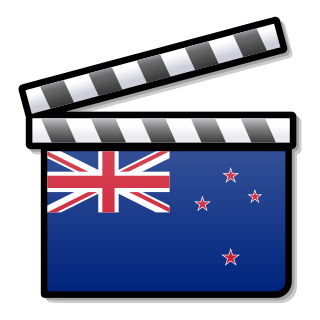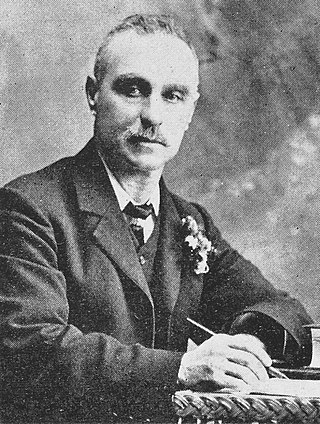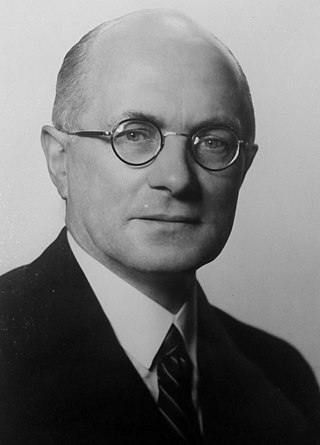Related Research Articles

New Zealand cinema can refer to films made by New Zealand-based production companies in New Zealand. However, it may also refer to films made about New Zealand by filmmakers from other countries. Due to the comparatively small size of its film industry, New Zealand produces many films that are co-financed by overseas companies.
The following lists events that happened during 1940 in New Zealand.

The New Zealand Centennial Exhibition took place over six months from Wednesday 8 November 1939 until 4 May 1940. It celebrated one hundred years since the signing of the Treaty of Waitangi in 1840 and the subsequent mass European settlement of New Zealand. 2,641,043 visitors attended the exhibition.

Sir Charles Manley Luke was a New Zealand politician and company director. He served as mayor of Wellington in 1895. His brother, Sir John Luke, was later mayor of Wellington from 1913 to 1921.

James Cowan was a pākehā New Zealand non-fiction author, noted for his books on colonial history and Māori ethnography. A fluent Māori speaker, he interviewed many veterans of the New Zealand Wars. His book The New Zealand wars: a history of the Māori campaigns and the pioneering period (1922–23) is his best known.

Frederick William Schramm was a New Zealand politician of the Labour Party. He was the eleventh Speaker of the House of Representatives, from 1944 to 1946.

Albert Edward Glover was a New Zealand politician of the Liberal Party.

Mary Manson Dreaver was a New Zealand politician of the Labour Party.

Thomas Charles Atkinson Hislop (29 November 1888 – 21 June 1965) was a New Zealand politician, lawyer, and diplomat. He served as the mayor of Wellington from 1931 to 1944.

Robert Alexander Wright was the Mayor of Wellington from 1921 to 1925, and a New Zealand politician of the Reform Party.

Sir Walter Charles Frederick Carncross was a New Zealand politician of the Liberal Party.

David Wilson was a New Zealand politician of the Labour Party. Through membership of the Legislative Council, he was a minister in the First Labour Government.

Richard Francis Bollard was a farmer and New Zealand politician of the Reform Party. He represented the Raglan electorate from 1911 to 1927, when he died. As Minister of Internal Affairs, he was a cabinet minister from 1923 to 1927 in the Reform Government.

Kenneth James Boswell was a New Zealand rower who won a silver medal representing his country at the 1938 British Empire Games.
James Mackintosh was a 19th-century Liberal Party Member of Parliament in Southland, New Zealand.

The 26th New Zealand Parliament was a term of the New Zealand Parliament. It was elected at the 1938 general election in October of that year.

John Alexander was a member of the New Zealand Legislative Council from 1934 to 1941 when his term ended. He was a barrister and involved in many organisations.

Thomas Brindle was a New Zealand activist for the New Zealand Labour Party who was jailed during World War I for speaking out against conscription. He was a member of Wellington City Council and stood for election to the House of Representatives five times. He was a member of the Legislative Council from 1936 until March 1950.

Petone Settlers Museum is a local history museum located in the Wellington Provincial Centennial Memorial, a historic building in Petone, Lower Hutt, New Zealand. The building was originally constructed to mark the Wellington province's centennial commemorations; the museum opened in the building in 1977. The building was extensively refurbished in 2016.
References
- 1 2 3 "100 Crowded Years". Auckland Star. 19 June 1941.
- 1 2 3 4 Renwick, William (2016). "Creating a National Spirit: Celebrating New Zealand's Centennial". Victoria University of Wellington . Retrieved 8 December 2022.
- ↑ "One Hundred Crowded Years". The Evening Post. 10 May 1941.
- ↑ "Poorly Patronised". Franklin Times. 25 July 1941.
- ↑ "No Sunday Films". Auckland Star. 6 February 1941.
- ↑ "Sunday Pictures". Nelson Evening Mail . 13 February 1941.
- ↑ "Tribute to Pioneers–Centennial Film". The Evening Post. 28 November 1940.
- ↑ "100 Crowded Years: Centennial Film". The Northern Advocate. 28 November 1940.